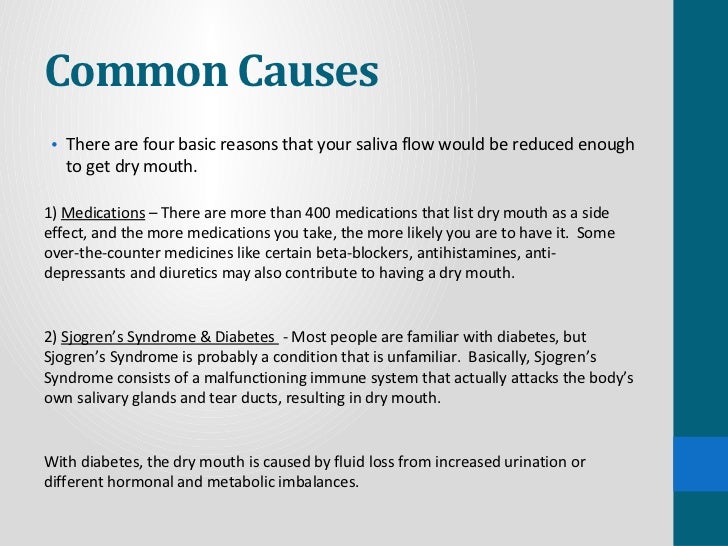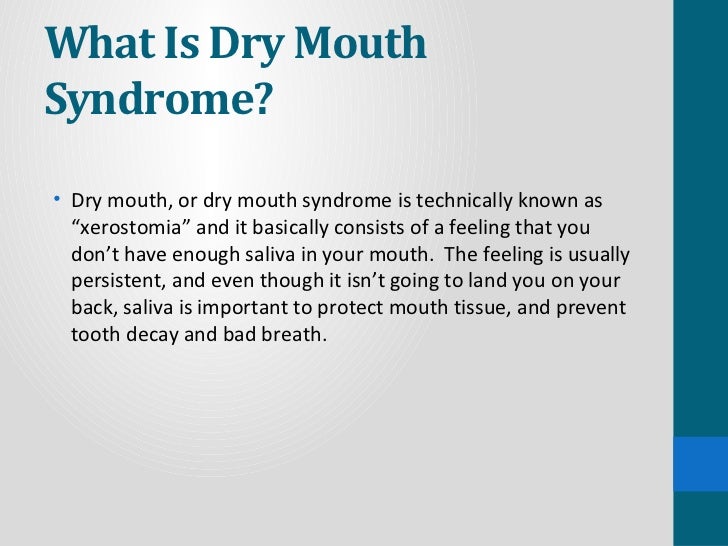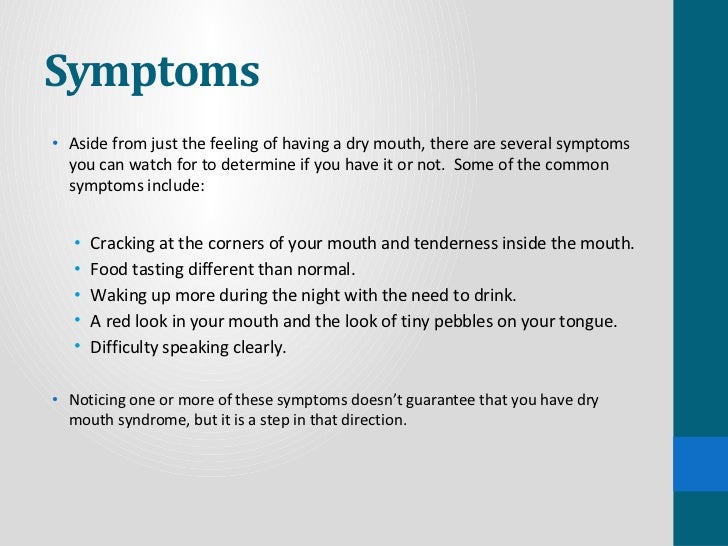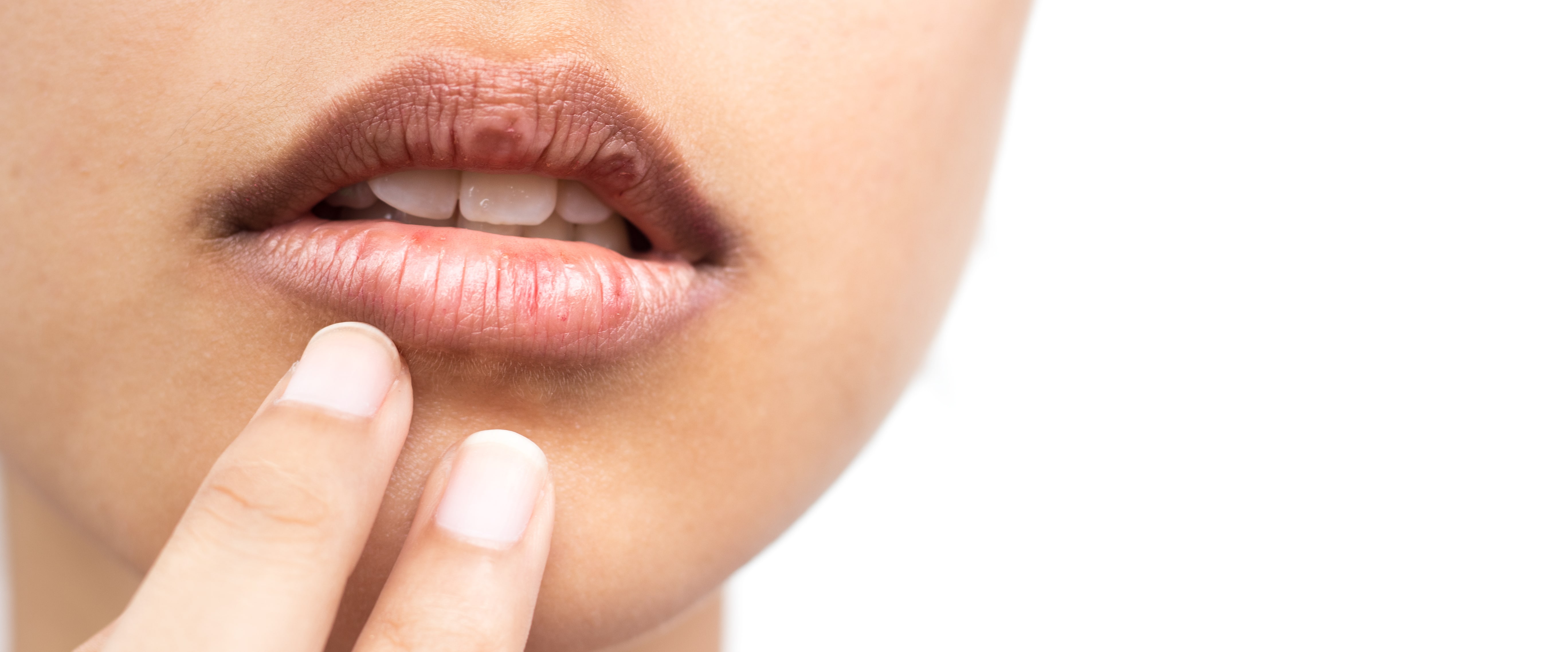
Dry mouth (or xerostomia) can take a serious toll on your teeth. It may be caused by your medications, health conditions or more.

Dry mouth, also known as Xerostomia, occurs when salivary glands don’t make sufficient saliva to prevent the drying of the mouth. Dry mouth can be a symptom or side-effect of other conditions and medications; however, it should not be ignored as it can lead to serious dental problems.

Dry Mouth. The many causes of dry mouth, combined with its variable severity, mandate that treatment be individually tailored to fit each patient’s situation.

Everyone has a dry mouth (Xerostomia) once in a while. But if it’s frequent, it can lead to serious health problems. Find a list of common symptoms.
Dry mouth. Dry eyes. Dry nose. Dry skin. Dry throat. Fatigue. Sjogren’s Syndrome can cause any combination of these, and sometimes much, much more.
Xerostomia, also known as dry mouth and dry mouth syndrome, is dryness in the mouth, which may be associated with a change in the composition of saliva, or reduced salivary flow, or have no identifiable cause.


An autoimmune disease that causes dryness of the mouth, eyes and other places is called Sjorgren’s Syndrome. Learn how to relieve the symptoms.
The more you know about dry mouth, such as dry mouth symptoms and causes of dry mouth, the more you can do to prevent it.




Dry mouth — also called xerostomia — results from an inadequate flow of saliva. Learn the symptoms and treatment for dry mouth.
Recent Comments